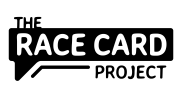Amy Blue
Tulsa, OK
As a white girl in a top-ranking and racially diverse high school, I could not understand why the student population segregated itself racially. I saw all of my classmates as equals and felt a strong sense of responsibility to make others see their classmates in the same light. I climbed out on a socially-unpopular limb, trying to unify (mostly) two student populations: the white kids who, at lunch and after school, hung out in the back of the school and rarely took part in the school’s extra-curricular activites… and the black kids who hung out in the front of the school and were happy to be surrounded by their own race in a school with a traditional black history. The front of the school is where you found the school’s homecoming queens and the star athletes. In the beginning, I felt it was my responsibility as a white girl to prove to other whites that black kids weren’t bad… because it was the blacks who were discriminated against. But, as my social network of black friends grew, I soon realized that the black kids discriminated aginainst the white kids just as much as the whites against them. But, for my black classmates, their self-segragation was rooted in a deep history of civil rights violations. I believe they felt not only a willinglness to segregate themselves from the school’s white population, but a responsibility to do so. It was a matter of pride. The school we attended was a purveyor of the American Dream for children of all races. Everyone knew they were going to be successful in the real world and chose to spend their high school years enjoying time with their like-skinned peers, not wasting time on race relations. After college I joined the American workforce. My first job paid $18,000 a year and required 60-hour work weeks, but I was doing what I loved to do. My next job paid $25,000, my wealth of professional knowledge grew and I was working a measly 50 hours a week. I watched others in my industry come and go. The heavy workload and low pay was a deterrant and some just weren’t good enough to keep their jobs. But even as I tried to prove myself and my worth as an over-achieving employee, eraching for the next level of my career, something disturbing began to happen. My colleagues, who had less experience, less knowledge and fewer skills were snapping up the jobs I wanted. Even people who had been fired for incompetence were being placed in jobs well beyond their competence level. The reason? They were minorities. One of my Asian friends told me I should change my name to something more ethnic. Perhaps that would help me land one of those coveted jobs. So, it seems, the tables have turned for this white girl. The discrimination I am feeling now is rooted in that same deep history of civil rights violations… only now it’s grown a new branch. This is the first time I’ve ever shared my story or my feelings because I, too, share a sense of pride… not for my white race but for all of the other races that have been discriminated against for so long. This is progress for them, right? This is what I wanted when I set out to desgregate the social circles of my high school, right? I wish I could leave it at that, but I can’t. When you are the one feeling the discrimination, knowing you’re being judged because of the color of your skin and your hair and your name, you feel violated. So, what’s next? Do I go out on that socially-unpopular limb again, this time fighting for myself? I don’t think so. Now I have a career to protect and a family to feed. Instead I choose to give ProPublica this short story and my six words. Equality Promoter Becomes Racially Inferior.






